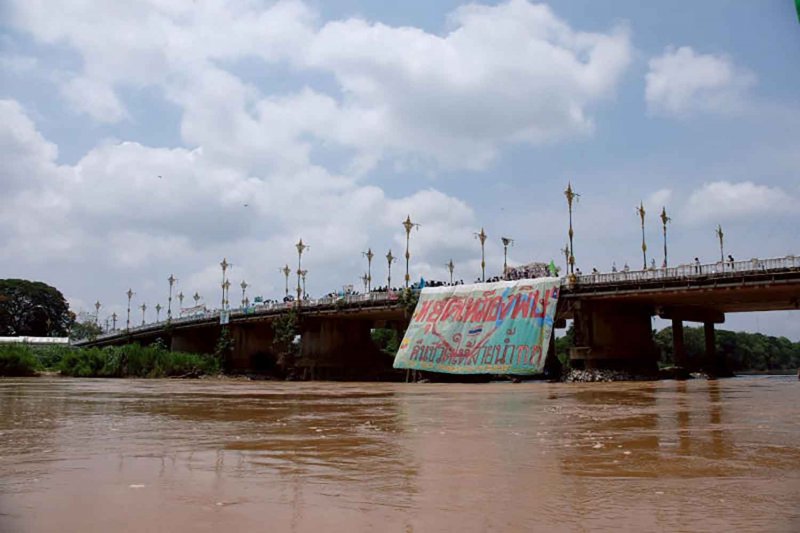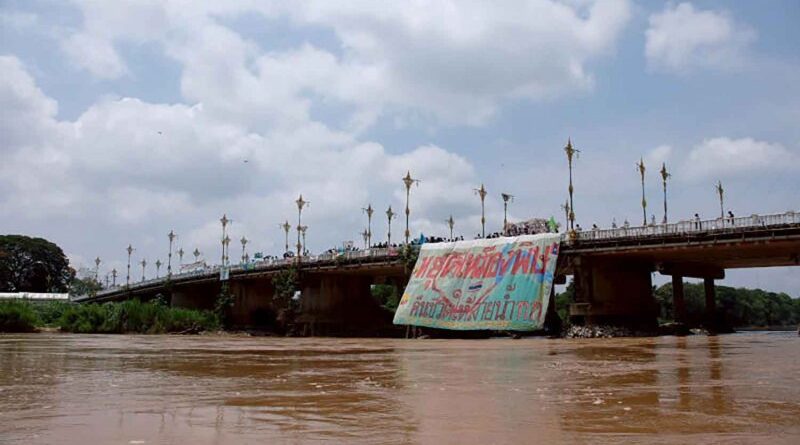North pushes Mekong pollution plan
Networks submit 10-point proposal to PM

Northern civil networks have called on Prime Minister Anutin Charnvirakul to solve the longstanding Mekong basin pollution, putting forward a 10-point action plan.
The networks from Chiang Rai and Chiang Mai have submitted a letter to Mr Anutin, urging immediate action on transboundary pollution affecting the Kok, Sai, Ruak and Mekong Rivers.
The petition highlights concerns over illegal upstream mining in Myanmar and calls for a plan to monitor soil and rice crops across 100,000 rai of farmland potentially contaminated with heavy metals.
Rakdao Pritchard, coordinator of the network for river protection, said the letter was also addressed to Deputy Prime Minister and Agriculture Minister Capt Thammanat Prompow and Deputy Prime Minister and Natural Resources and Environment Suchart Chomklin, as well as Foreign Minister Sihasak Phuangketkeow.
The group cited pollution from rare earth and gold mining operations in Myanmar’s Shan State as the root cause of heavy metal contamination in tributaries of the upper Mekong. Demands in the 10-point proposal were outlined in the letter.
Alternative raw water sources must be secured for regional waterworks in Chiang Rai due to arsenic and barium traces in tap water.
New water sources must be provided for village water systems in Mae Ai district, Chiang Mai, and upgrade systems in at least 30 villages across affected districts. Soil quality must be tested in 12,000 rai of floodplain in Tha Ton, Mae Ai, and inspections of rice crops in 100,000 rai of irrigated farmland before harvest are also needed.
Provincial heavy metal testing centres are to be established in Chiang Rai and Chiang Mai to monitor water, soil, crops, aquatic life and human exposure.
All mineral imports from Myanmar must be suspended until proven free of pollution-linked origins. Sediment trap dam projects must be cancelled due to a lack of scientific evidence and adverse impacts on farmland and ecosystems. A joint task force of government, academics and civilians must be formed to close illegal mines, monitor contamination, compensate affected communities, and restore river ecosystems.
Formal negotiations with Myanmar and China must be launched to demand accountability for cross-border mining pollution. Crisis communication systems must be improved to ensure inclusive access to information across ethnic and remote communities.
Power purchase agreements from the Pak Beng hydropower dam in Laos must be delayed until environmental impact studies confirm safety, especially regarding sedimentation risks in the Mekong reservoir.
Meanwhile, Mr Suchart announced plans to visit Khao Yai National Park on Oct 5–6, followed by a field inspection of the Kok River pollution crisis in Chiang Rai on Oct 9.
“I’m committed to addressing environmental issues that affect people’s lives from birth onwards,” Mr Suchart said.
Source – Bangkok News




